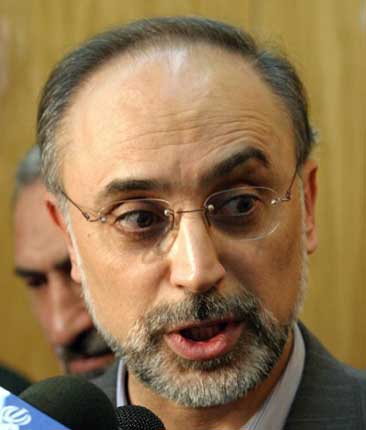Iran points finger at West again as murdered scientist is laid to rest

Your support helps us to tell the story
From reproductive rights to climate change to Big Tech, The Independent is on the ground when the story is developing. Whether it's investigating the financials of Elon Musk's pro-Trump PAC or producing our latest documentary, 'The A Word', which shines a light on the American women fighting for reproductive rights, we know how important it is to parse out the facts from the messaging.
At such a critical moment in US history, we need reporters on the ground. Your donation allows us to keep sending journalists to speak to both sides of the story.
The Independent is trusted by Americans across the entire political spectrum. And unlike many other quality news outlets, we choose not to lock Americans out of our reporting and analysis with paywalls. We believe quality journalism should be available to everyone, paid for by those who can afford it.
Your support makes all the difference.Iran has said that it will increase security for its nuclear experts after the funeral yesterday of a scientist killed in an assassination that the government blamed on the Mossad and the CIA.
Iranian state media said the killing of the scientist and the wounding of another on Monday was part of a Western campaign to sabotage its nuclear programme, which the US and its allies suspect is aimed at producing weapons. Iran denies the allegation.
According to Iran, the campaign included the abduction of Iranian scientists, the sale of faulty equipment and the planting of a destructive computer worm known as Stuxnet, which briefly brought Iran's uranium enrichment activity to a halt last month.
Iran's chief suspect is Israel, whose Mossad spy agency has a long history of assassinating foes beyond its borders. In this case, Iran accuses Israel of enlisting agents of an Iranian opposition group, the People's Mujahedeen, to carry out the hit, the defence minister said. There was also coordination with the CIA and MI6, he claimed.
Iran's nuclear chief, Ali Akbar Salehi, said yesterday that the assassination was a warning to Iran before the nuclear talks with world powers on 6-7 December. "The wicked people wanted to demonstrate their ugly side, which is the policy of carrot and stick, prior to the upcoming nuclear talks," he was quoted by state TV as saying.
The two scientists were targeted by bombs that hit their cars in separate parts of the capital. Tehran's police chief has said assailants on motorcycles stuck magnetised bombs to their cars while they were in traffic and detonated them seconds later.
Time magazine carried a different account on Tuesday, saying an explosive charge was placed inside the scientist's car and detonated by remote control after he got into the vehicle. It quoted a Western intelligence expert with knowledge of the operation, and said the other attack was similar.
Several Iranian news websites said that the man who survived, Fereidoun Abbasi, realized he was under attack and was able to stop the car and jump out along with his wife.
Mr Abbasi appears to be the more senior of the two. He is on a sanctions list that the UN Security Council passed in 2007, where he was described as a defence ministry scientist with links to the Institute of Applied Physics. He was also said to be working with a scientist believed to be heading nuclear projects with possible military dimensions.
Join our commenting forum
Join thought-provoking conversations, follow other Independent readers and see their replies
Comments